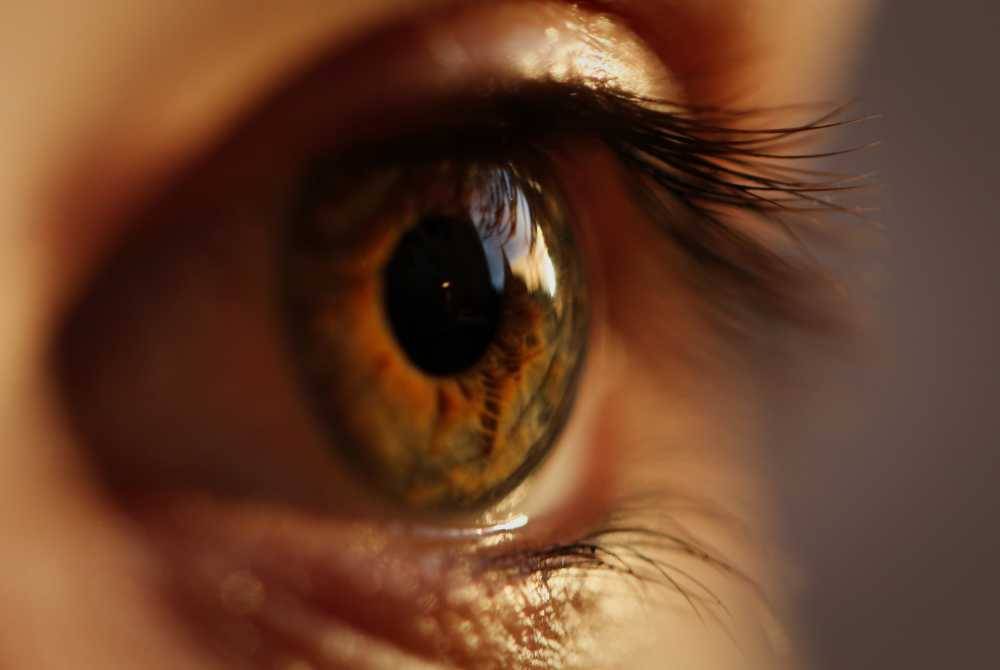Guarding your gaze: A test of faith when alone
There are many verses of the Quran and Hadiths that emphasise the importance of protecting our eyes, especially when we are alone, because that is where a person’s true test lies.

In the era of advanced technology, with just one click, a person can access various forms of entertainment and content that can jeopardise one's faith.
For this reason, we are urged to guard our gaze. It is not just an ethical matter, but a command from Allah SWT to protect the purity of the heart and personal dignity as a Muslim.
The question is, how well can we control our gaze, especially when no one is watching? There are many verses of the Quran and Hadiths that emphasise the importance of protecting our eyes, especially when we are alone, because that is where a person’s true test lies.
Ibn Al-Jawzi said: “Do not be deceived by yourself for maintaining obedience in front of others, but committing disobedience when alone. Indeed, the true test of sincerity is what you do when no one is watching except Allah.”
When we are in the presence of others, we may find it easier to maintain good manners and boundaries. However, what about when we are alone in a room with a phone in hand and the internet unrestricted? This is where a person’s true faith is tested.
The Prophet Muhammad SAW said: “Guard your chastity (i.e. private parts, from illegal sexual acts) except from their wives or (the captives and slaves) that their right hands possess.” Someone asked: “What if a person is alone?” He replied: “Then Allah has more right for you to feel ashamed before Him.” (Hadith narrated by At-Tirmidhi)
Based on this Hadith, it is clear that even when no one is watching, Allah SWT is All-Seeing, and as His servants, we should feel ashamed before Him.
Allah SWT clearly states in the Quran: “Tell the believing men to lower their gaze and guard their chastity. That is purer for them. Surely Allah is All-Aware of what they do.”
“And tell the believing women to lower their gaze and guard their private parts.” (Surah an-Nur: 30-31)
Looking at these verses, it is evident that guarding the gaze is not a choice, but rather a command from Allah SWT that must be obeyed by every Muslim, whether men or women.

Danger of the sin of the gaze
The Prophet Muhammad SAW once explained that zina (adultery) is not only a physical act but begins with the eyes that look at what is forbidden.
Prophet Muhammad SAW said: “Allah has decreed for every son of Adam his share of zina, which he will inevitably commit. The zina of the eyes is looking, the zina of the tongue is speaking, one may wish and desire, and the private parts confirm that or deny it.” (Hadith narrated by Muslim)
In another Hadith, the Prophet Muhammad SAW also detailed the meaning of the zina of the eyes.
The Prophet SAW said: “Both eyes commit zina and their zina is looking (at what is not lawful to them).” (Hadith narrated by Al-Bukhari)
These two Hadiths remind us to guard our eyes from looking at the private parts of others, whether men or women intentionally. Such acts are considered the zina of the eyes.
Therefore, this act must be avoided by every Muslim, especially when alone.
It is not only the Quran and Hadith that warn about the consequences of not guarding the gaze, but scholars have also reminded us of this matter.
Ibn Qayyim Al-Jawziyyah in Ighathatul Lahfan states: “Allah says the gaze is one of the poisonous arrows of Satan. Whoever forsakes it, out of His fear, he will be rewarded with a faith whose sweetness he will relish in his own heart.
Meanwhile, Imam Al-Ghazali said: “Whoever does not control their gaze, Satan will guide them towards destruction.”
Even a poet reminded us: “Remember, if you release your gaze recklessly, the heart will bear the burden of that gaze. You see a little and then you can no longer stop. That little is enough to make your mind unsettled.”
How to guard the gaze
For those who are alone, here are some of the ways to guard your gaze:
1. Remember that Allah SWT is always watching.
If human beings can install closed-circuit cameras (CCTV) to monitor workers, isn’t Allah SWT greater than that?
2. Avoid things that trigger temptation.
Stay away from inappropriate websites and reduce the use of social media filled with images of people not covering their aurah (private parts).
3. Recite supplications and dhikr when the urge to look at something haram arises.
The Prophet Muhammad SAW taught us to say: “O Allah, indeed I seek refuge in You from the evil of my hearing and the evil of my sight, and the evil of my tongue and the evil of my heart.” (Hadith narrated by At-Tirmidhi)
4. Increase in seeking forgiveness and performing repentance prayers.
If you have fallen into temptation, do not let that sin become worse. Immediately repent with sincerity.
Remember, guarding the gaze is not just about etiquette but is the main shield in protecting the purity of the heart and personal dignity.
Understand that the true test of a person’s character is not when they are in front of others, but when they are alone and only Allah SWT can see them.
So, ask yourself: “What do I do when no one is watching?”
May Allah grant us the strength to guard our gaze and stay away from sin.
Article written by Mohd Ridwan Razali, a senior teacher of Turath Al-Quran and As-Sunnah at Sekolah Menengah Imtiaz, Besut, Terengganu
Download Sinar Daily application.Click Here!














